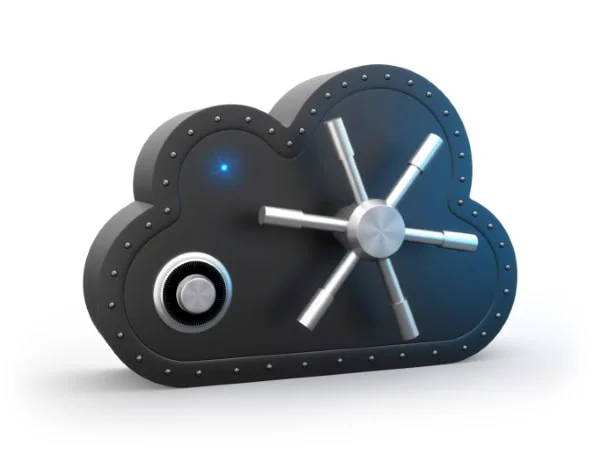How many emails arrive in your inbox each and every day? Far too many, I would say. According to a recent study, we’re spending 3.1 hours each day on business e-mail – and another 3.2 hours on private matters. This is why more and more smart businesses and start-ups are getting rid of email. Read on to learn how their ’no email’ policies work - and why.
Full inbox? Never again!
Does your inbox feel like an ever-overflowing bucket of messages? If so, you’re in good company. Many of us have taken to take care of the inbox way past their working hours, and even vacation time, just to keep the flood threat at bay. Which is not a very sustainable solution. Not at all. Because we all need some time off to be able to keep up the good work and to keep being motivated and creative. But what else to do?
The No Email Policy
That’s exactly what the people at Atos asked themselves, and their answer was simple: get rid of email. In 2011, they launched the Zero Email project to replace the email mess with precise and goal-oriented communication. The goal of zero email has never been reached, especially in external communication with clients. But according to their own reports, the number of emails sent every day has declined drastically – and communication in general seems to have become more efficient. Several other companies have attempted to gotten rid of email, and most of them seem very happy about it. Instead of the email inbox, they now use apps like Skype, Trello, Dropbox, Cloudwards or Slack – and last but not least good old oral communication. Read on to learn the big five benefits of no email policies.
1. More focus
The average worker spends most of his or her day in and out of the inbox, sometimes checking in every couple of minutes. Which is the best way to avoid being focused. Because every time we switch our attention to the inbox, it takes a couple of seconds to recover from the interruption, however short it was. Actually, each time we switch to the inbox, we lose double time we could have spent working: once for actually checking the mail, and a second time for regaining our focus. Anyone getting rid of email needs to rethink their work pattern. Just imagine being able to check your inbox only twice a day, knowing that really important stuff will find its way to you through another channel. Just image how much actual work you could get done! No email means precisely channeled information – if it is done right.
2. Multi Channeled Communication
Getting rid of email will give your business a chance to rethink its ways of communication. Apps like Slack let you chat in organized groups, which essentially means communication becomes immediate and channeled at the same time. No more CC, BCC or Re:RE:Re:Re:RE, no more cleaning up after extensive group conversations spamming your inbox. Instead, conversations can be held in online group meetings, only better. If email is replaced with specialized group discussions focusing on certain topics, your team will be able to communicate faster and more focused. No matter where, no matter when – all over the globe.
3. Use Efficient Collaboration Tools
Messaging systems are not only about communication but mostly about collaboration. If you replace the subject heading with online group discussions, you and your team will really start to collaborate. As a remote working columnist of the New York Times recently put it: “I have a feeling of intimacy with co-workers on the other side of the country that is almost fun.“ Because, thanks to replacing email with Slack, he is able to read and virtually listen into discussions that would never have been accessible to him using email. In short: No email means more time, more focus – and efficient collaboration. Which, in turn, means more motivation and well-being at the workplace of the future.
4. Always up do date
If the individual inbox is being replaced by group conversations in the cloud, everyone is always up do date. Anyone invited can read into past discussions, no matter when and where they are. A staff member has been away for a week after the holidays, a lengthy vacation or some other reason? No problem. New to the team? Read into the conversations and get involved in no time. No one can forget to cc you (or even worse, deliberately leave you out), and no guess-work about who has received what. And it gets better: no cc means no sending the same message data several times – and no saving them, either. Which brings us the next big advantage of saying no to email.
5. Save on Data Storage
Even in the digital world, there is a shortage of space. Storage memory is cheaper than ever, but still: it costs money. Especially if you want it safe, secure and backed up. Every message means data. And with email, the data are redundant. The same email sent to ten members of staff will be saved ten times, or rather: eleven times, counting the “Sent” folder. Storage memory means cost, and redundant data means unnecessary storage, which again means avoidable expenses. Expenses that will be reduced by using a cloud-based messaging system: All data and messages within a group will be saved on central storage, accessible anytime from anywhere. Much less storage space gives you more financial room. And who wants to say no to that?
No email = total efficiency
It might be time to wave email good-bye. The future of work probably doesn’t need the inbox. Which is why we have designed zistemo with direct access to Slack & Co. – to allow you to focus on keeping up the good work. And not on cleaning up the email mess.






